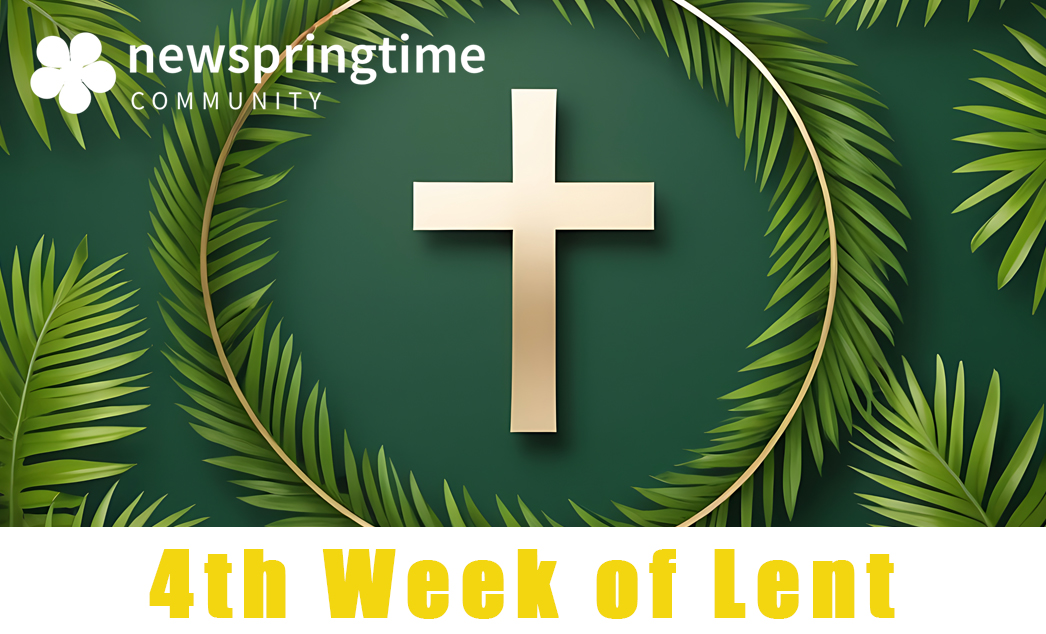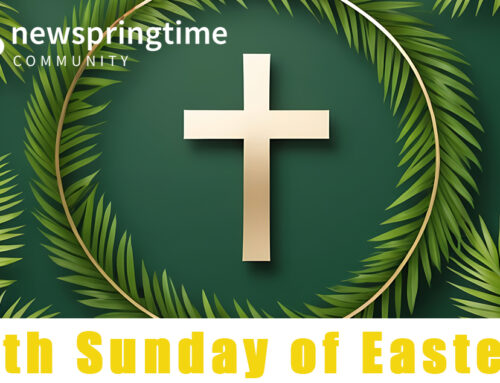If you would like to download a copy of this notes in PDF, please click here
Commentary on Jn 3:14-21, 3rd Sunday in Lent 2024
This Sunday’s gospel reading contains the most quoted line in the Bible which encapsulates the good news message. In the Amplified Bible this synopsis of the kerygma reads, “For God so [greatly] loved and dearly prized the world, that He [even] gave His [One and] [a]only begotten Son, so that whoever believes and trusts in Him [as Savior] shall not perish but have eternal life.” It was spoken by Jesus in the course of his conversation with Nicodemus, a Pharisee. We are told that he was a ruler of the Jews, a member of the Sanhedrin, which was the Jewish council in Jerusalem. Jesus referred to him as a teacher in Israel. Nicodemus came to Jesus at night-time, perhaps because of fear, or just because he wanted a good private time with Jesus. He was a man of influence and wealth who used to buy spices (cf. Jn 19:39). In due course he spoke in defence of Jesus (cf. Jn 7:50) and he was involved with the burial of Jesus (cf. Jn 19:39).
The gospel reading begins when Jesus referred to Num 21:4-9 which recounts the time when Moses lifted up the bronze serpent in the desert. Those who looked at it were saved (cf. Wis 16:6), so too Jesus, the New Moses, must be lifted up in his crucifixion as a ransom for many. There is an echo here of the time when Abraham was willing to sacrifice his only, beloved son as God had directed. Then, the Lord withdrew his request. However, God the Father asked that Jesus be sacrificed. Jesus consented, and he, unlike Isaac, was put to death. Jesus, was the captain of his soul, and died out of love for us. As he said, “no greater love has a man than that he would lay down his life out of love for others” (Jn 15:13). In Rm 5:8-10 St Paul, “God proves His own love for us in that while we were still sinners, Christ died for us! Much more then, since we have now been declared righteous by His blood, we will be saved through Him from wrath. For if, while we were enemies, we were reconciled to God through the death of His Son, then how much more, having been reconciled, will we be saved by His life!”
Those who believe in Jesus and the saving efficacy of his loving death, will neither be judged or condemned. Through no merit of theirs they will receive the free-gift of God’s merciful love, which is their passport to eternal life. But those who do not believe in Jesus and the free-gift of his merciful love will not only be condemned they will perish in eternal separation from God.
Speaking about the saving merits of Christ’s death on the cross, St Cyril of Alexandria (376-444 AD), explained the spiritual meaning of the bronze serpent and how it points to the saving work of Jesus Christ: “This story is a type of the whole mystery of the incarnation. For the serpent signifies bitter and deadly sin, which was devouring the whole race on the earth… biting the soul of man and infusing it with the venom of wickedness. And there is steadfast faith. But the serpent, being fixed upon a lofty base, signifies that Christ was clearly manifested by his passion on the cross, so that none could fail to see him.”
In this gospel reading Jesus presents us with what appears to be a dualistic either-or choice between light (i.e. faith expressed in good deeds) and darkness (i.e., lack of Christian faith expressed in wicked deeds) This binary perspective is characteristic of apocalyptic writing, i.e., with the end of the world and the final judgment in mind. We have already adverted to the fact that Nicodemus came from the darkness of night into the presence of Jesus. Later in John’s gospel we will be told that during the last supper, Judas went from the presence of Jesus out into the night (Jn 13:30). Both statements were intended by John to be of symbolic importance. Commenting on the concluding verses in next Sunday’s Gospel, St Thomas Aquinas wrote, “holy persons desire that their good works be known to men for the sake of God’s glory and for the good of the faith: “Let your light so shine before men that they may see your good works and glorify your Father in heaven” (Mt 5:16). Such a person comes to the light to make clear that his deeds are done in God, that is, according to God’s commandment or through the grace of God. For whatever good we do, whether it be avoiding sin, repenting of what has been done, or doing good works, it is all from God: “You have accomplished all our works” (Is 26:12).” What Jesus said at the end of our gospel reading reminds me of Tob 12: where we read, “It is good to conceal the secret of a king, but to acknowledge and reveal the works of God, and with fitting honor to acknowledge him. Do good and evil will not overtake you.”





